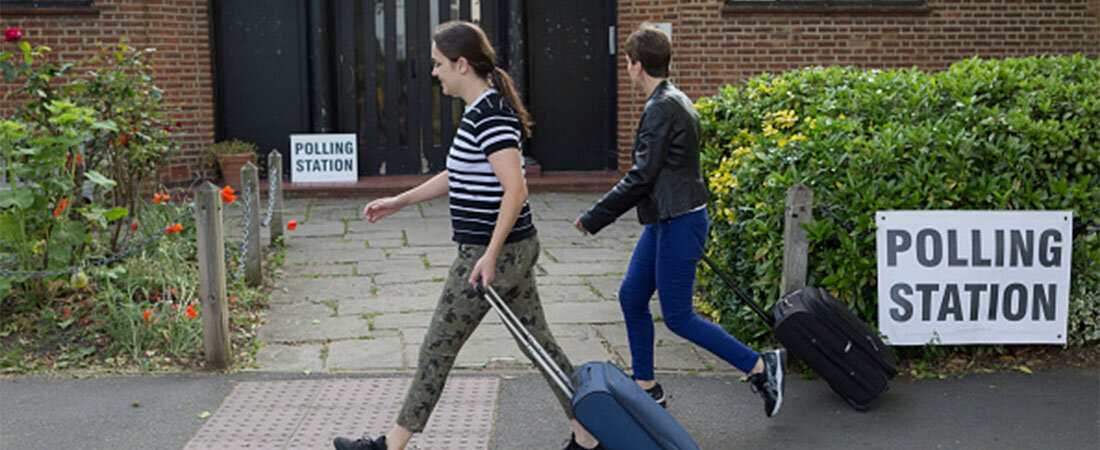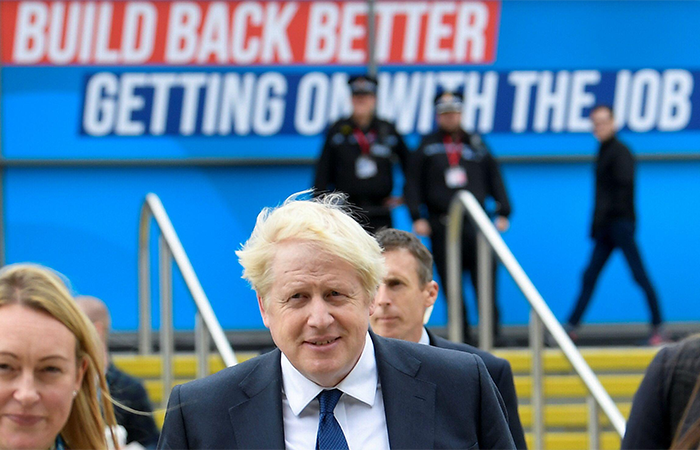LYDIA BUCKROYD & JUDE RYAN-GRAY
You would be forgiven for thinking that the words ‘UK General Election’ and ‘Labour majority’ mean the same thing at the moment. The Labour Party is predicted to make huge seat gains, overcoming a Conservative party that the public have lost faith in after 13 years of power. But while journalists are focusing on a presumed Labour win in 2024, a bigger trend in our political system is being missed – that UK voters are being driven towards disengagement, rather than Labour, by a failing Conservative party.
Over the last few weeks, Portland’s Research team have conducted an in-depth analysis of the presence of apathy in British politics: how are people thinking about politics generally? And what does this mean for the two largest parties, a year before one of the most decisive elections in a generation? Our research has produced extensive insights – from standard political polling measures, to a unique ‘apathy index’ – combining the public’s cynicism towards politics and their engagement in the system.
Below, we take you through our analysis of the current state of play, who these apathetic individuals are and what they think, and then finally what it all means going forward.
The current state of affairs
Labour’s poll lead is inarguable: a 20pt lead over the Conservatives. But a deep dive into the figures suggests that Labour has structural weaknesses.
We asked the public to assess whether the current government are doing, and whether Labour would do, a good or bad job on eight separate issue areas. The public gives the government an average net score of -32% – an appalling verdict on their perceived competence in power. But Labour, for all their momentum, are only just in positive figures, with an average net score of +3% – albeit beating the Conservatives by 35pts. It’s clear that the Conservatives are seen as incompetent, but it’s also clear that Labour hasn’t sealed the deal just yet.
Leadership tells a similar story. When asked to select a positive trait for Rishi Sunak, 46% say ‘none of the above’. For Keir Starmer that figure is 36%. Worryingly for the ex-Winchester College Sunak, in the midst of a cost-of-living crisis, 43% of the public see him as unrelatable. And whilst Starmer is seen as more relatable, 28% of the public say his biggest red flag is ‘flip-flopping on political issues’.
These figures are important because they suggest that Labour lacks genuine ‘pull’ factors for voters, which has inspired disengagement in the population. Whilst 15% of 2019 Conservative voters have flipped to Labour, 19% say they wouldn’t know who to vote for in another election or would not vote at all. The Conservatives are pushing away voters in their droves, but those voters are not necessarily yet convinced by the Labour offer.
The apathetic
If the Tories are turning them away and Labour are not effectively drawing them in, where does that leave Britain’s voters? Are they still making their mind up, or are they fed up with the system entirely? We have been observing these figures for months and wanted to test those questions.
We designed a questionnaire to understand the public’s engagement with politics, and how cynical they are – an ‘apathy index’ of sorts. By aggregating scores across 13 different statements, we found that 13% of the UK public can be described as ‘extremely apathetic’ – scoring 3 or less on a 10-point apathy scale. The results show that while the Conservatives may be driving this apathy, it’s Labour who has the most to lose from it.
These individuals should be natural Labour supporters. They tend to fit the profile of historic Labour voters, being majority mid-low income, not degree-educated, and female. They tend to live just outside of major cities – a region Portland has already highlighted as being electorally significant in the next election. Their current voting intention suggests that if they do turnout to vote, they will likely vote Labour: 48% Labour vs. 10% Tory (excluding don’t know and wouldn’t vote). However, 60% say they are more likely than not to stay at home on election day.
Over three quarters (77%) of the extremely apathetic cannot name a single positive trait for Rishi Sunak, and half (51%) cannot select a single positive trait for Keir Starmer. And while they give the Conservatives a dismal average net score of -60% across 8 job areas, Labour’s score is still -20%.
Crucially, our research has found that the more disengaged people are, the more likely they are to support Labour. And as the public becomes more engaged, they also become more likely to support the Conservatives. Of the top 13% of engaged individuals, 43% say they would vote Conservative versus 37% Labour. And most importantly, 91% say they are more likely than not to turn out. The Conservatives may have less support overall, but the support they do have seems much more electorally reliable.
This does not mean that Labour will suddenly lose a 20pt lead in the election. But it does mean that if Labour’s offering continues to bore the public, they will likely substantially underperform current poll predictions. It goes without saying that to win an election, Labour needs their voters to turnout. But our research shows that the least likely to turnout on election day are the most likely to say they’ll vote Labour.
The next year of politics
Of course, as we gear up to the next election, policy positions should firm up and manifesto commitments will breathe fire into the political arena. Labour cannot tip-toe around issues – they will need to take a stance.
There is an opportunity for Labour to re-engage the extremely apathetic on immigration issues. MaxDiff analysis (preference testing) shows that the extremely apathetic care four times more about reducing levels of immigration than the rest of the public. This comes at the same time as Keir Starmer is beginning to harden his stance on UK immigration levels. According to our analysis, this could be a strategically savvy move.
Labour has a far greater chance of appearing competent on immigration than the Conservatives, because they already outperform their opposition by so great a margin. The extremely apathetic give the Conservatives a -72% net performance score on immigration (the rest of the population give a score of -49%) and give Labour -28% (versus -9% from the rest of the public). Based on these scores, it will be far easier for Labour to frame themselves as the party who can tackle immigration and provide a pull factor for disengaged voters.
What is clear is that disengagement poses a significant threat to Labour’s electoral hopes. The Conservatives are pushing voters away in their droves. But Labour is not offering an exciting alternative – and without that, voters who are rejecting the Conservatives are more inclined to stay home than vote Labour. The Conservatives’ failures might be driving political disengagement in the UK, but it is Labour who need to find a way of fixing it before the next election.





